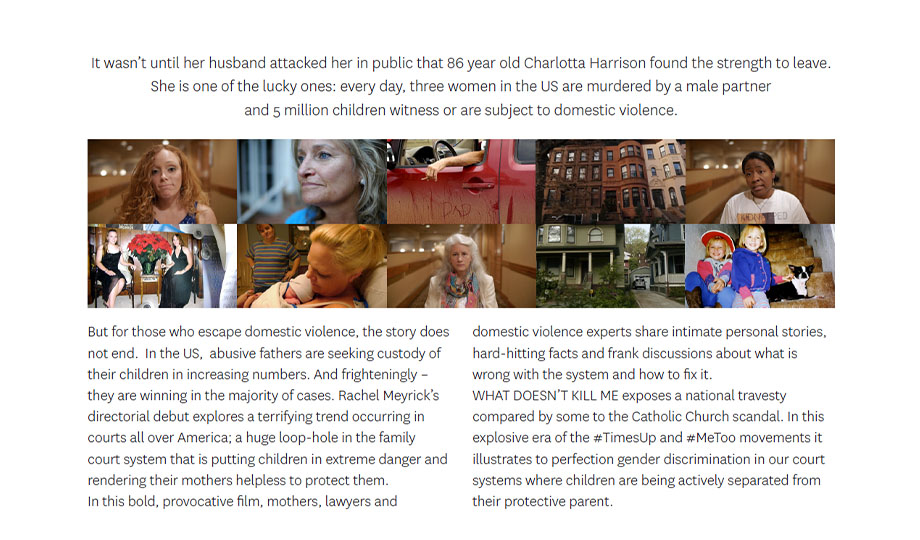A film about domestic violence drew an incredible response in an online screening and talks hosted by Brunel University London and the Temple Women’s Forum.
Survivors, lawyers, judges, police and social workers were among the 1,200 people from across the world who together watched What Doesn’t Kill Me.
The discussion, led by barrister Ruby Sayed, sparked more than 500 comments and questions in the chat.
It comes as fresh figures show domestic abuse rose by 10 per cent in the past year while The House of Lords scrutinises the UK’s Domestic Abuse Bill line by line.
“The film and panel discussion really hit a nerve,” said organiser Dr Adrienne Barnett, Senior Lecturer in Law at Brunel. “Much of the chat reflected the harrowing experiences survivors encounter in the Family Court. We hope that, as one attendee said, ‘it feels like change is coming’.”

The award-winning British-made film graphically exposes the harrowing ordeal domestic abuse survivors and their children face in the US Family Court. Children in the US can be taken from their protective parent and placed with an abusive parent. This is happening more and more in the UK, noted Natalie Page, founder of #thecourtsaid survivor justice group.
“Rachel Meyrick’s deeply affecting film raises fundamental issues relevant to the Family Court in England and Wales,” Her Honour Judge Sapnara said, starting the talk.
Nicole Jacobs, the new Domestic Abuse Commissioner, told the audience “we have an extraordinarily long way to go to get to where we need to be in relation to domestic abuse including in the Family Court.”
The Domestic Abuse Bill also introduces the first statutory definition of domestic abuse, including economic abuse and controlling and manipulative non-physical behaviour.
Panellist Professor Evan Stark, noted for his trailblazing work on coercive control, called coercive control “the most important source of physical, psychological, social and economic harm to women and children and a major source of harm to men.”
Marai Larasi MBE highlighted how racism is often used in the Family Court context to discredit black women.
To host your own screening, see here: https://www.whatdoesntkillme.com/
If you are affected by the issues raised in the film or discussion, find support here: https://www.nationaldahelpline.org.uk/